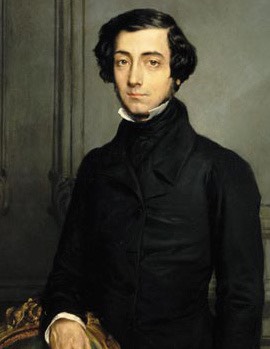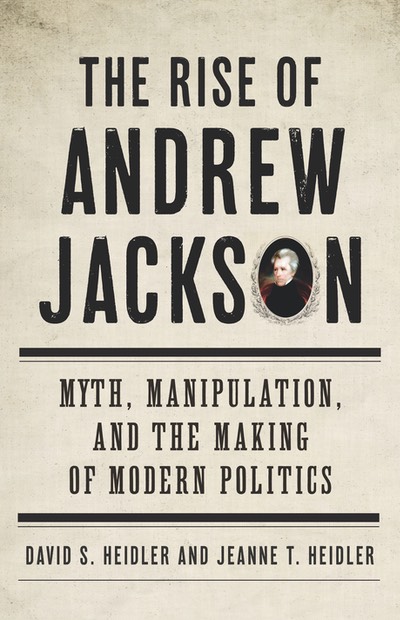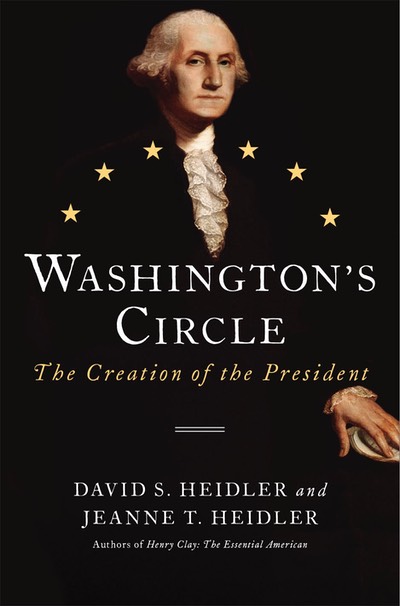He grew up in a country that had vivid memories of how its revolution had started with idealistic promise and enlightened principles but had descended into the wanton violence of the Reign of Terror. French revolutionaries intent on cleansing Paris of aristocratic “vermin” had murdered his grandparents and had come very close to killing his parents too, but his mother and father were lucky to outlast the bloodlust. His mother might have disagreed, for she never really rebounded from the grim days spent in a communal cell reeking of excrement and fear. She had been a twenty-year old bride watching her family slowly disappear as its members were hauled piecemeal to the guillotine with no reason for the hauling other than the creepy randomness of raw power and the capricious cruelty of government by mob. She awoke each morning certain that the day’s list of condemned would include her name or her husband’s, and when it didn’t and she was finally released, she never really recovered from the dread.
More than a decade later when she gave birth to the little boy they named Alexis-Charles-Henri Clérel de Tocqueville, the event, like the births of her other two little boys, was merely a piece of life more than a joyous occasion, something one did because it was something one did. Alexis would remember his mother as always withdrawn and moody, and he would slowly come to understand that she looked haunted because she had looked on too much that was too ugly.
Alexis de Tocqueville was born today, June 29, two hundred ten years ago. Napoleon Bonaparte was at the height of his power in France, and Thomas Jefferson was in his second term as president of the United States. The strange duality of that circumstance bore importance for the boy, though he couldn't have known it at the time. Bonaparte was a product of the French Revolution, but Jefferson was one of the shapers of the American one, and that would make all the difference in the world, as Alexis would later discover. As he grew to maturity, he was captivated by the events that had killed his forebears and destroyed his mother. He studied the French Revolution dispassionately to understand its course and contours, but most of all he cultivated a desire to see as much of the world as he could that was different, that wasn’t ugly.

Tocqueville
In part that was why he traveled to the United States in 1831. He was 26 and his companion, Gustave-Auguste de Beaumont de la Bonnière, was only three years his senior, but they were more than young men on an adventurous road trip. Officially they were commissioners from the French government sent to study America’s penal system. This they did with diligence, but Tocqueville also wound up studying America itself, including its people, its culture, its politics, and most tellingly its future. He did a thorough job of it, beginning with an Atlantic passage of 38 days on an American sailing ship, which gave him the chance to mingle with passengers and sharpen his fluency in English. An enchanting girl of 18 helped with the language, and a prominent New York merchant introduced Tocqueville to politics and commerce. By the time their ship landed in New York, passengers and crew alike were amazed at how fascinating their new friends from France were.
It set a pattern of jovial associations with Americans wherever the two went. The joviality was helped by the French travelers’ youth, good looks, and engaging natures, but most of all these young men effortlessly inspired affection and trust in almost every American they met. They did it by listening to banal details with sincere interest, greeting jests with wide grins, praising food as grateful guests, flirting with matrons as dashing courtiers, and winking at girls, whether plain or pretty. People found themselves telling Tocqueville and Beaumont things they wouldn’t have uttered to close family.
And so it was that Tocqueville and Beaumont arrived in New York armed with no less than 70 letters of introduction that they didn’t need. Newspapers that announced their mission aroused a friendly curiosity among their hosts, and the city’s social mavens soon made the lads lions in fashionable parlors and drawing rooms all over Manhattan and associated boroughs. They then traveled broadly to visit cities in the mid-Atlantic and New England. They ranged west to Detroit, Green Bay, and Sault Ste. Marie. They swung back through Baltimore then headed west again to Ohio whence they rode the Mississippi River to New Orleans. They traveled overland to Nashville and up to Washington where they met every important personage in the American government, including President Andrew Jackson, who did not care for them. As they later revealed, the feeling was mutual.
Jackson, however, was the exception in all particulars. Tocqueville and Beaumont met very few Americans they didn’t like, and Americans returned the favor. In fact, the two would have visited even more places and met even more people given the time. Tocqueville would always regret that he had not been able to winter in Charleston or visit the aging James Madison in Virginia. But the itinerary had already spanned far beyond their commission, amounting to a journey of thousands of miles that consumed most of 9 months and threw them in the company of virtually every famous American as well as quite a few ordinary ones along the way. Mindful of the calendar and the strained patience of superiors in Paris, the French commissioners reluctantly bade their friends adieu and went home to write their report on prisons.
Alexis de Tocqueville was already planning to write something else.



